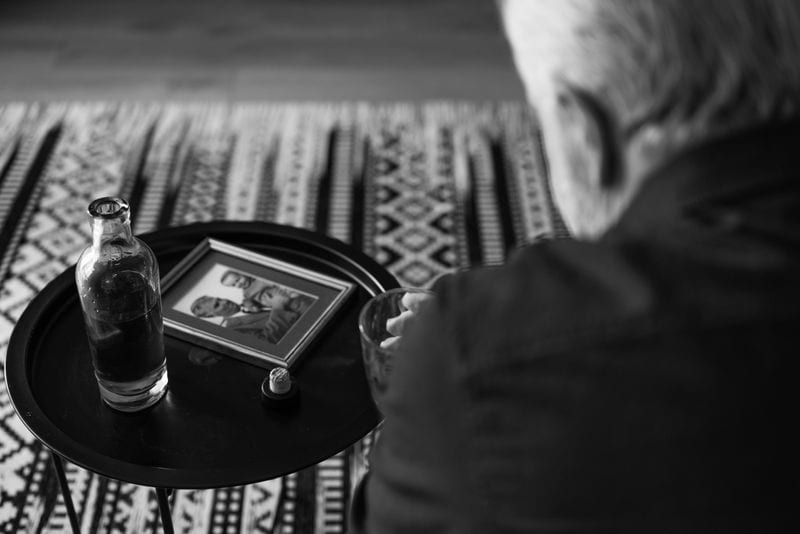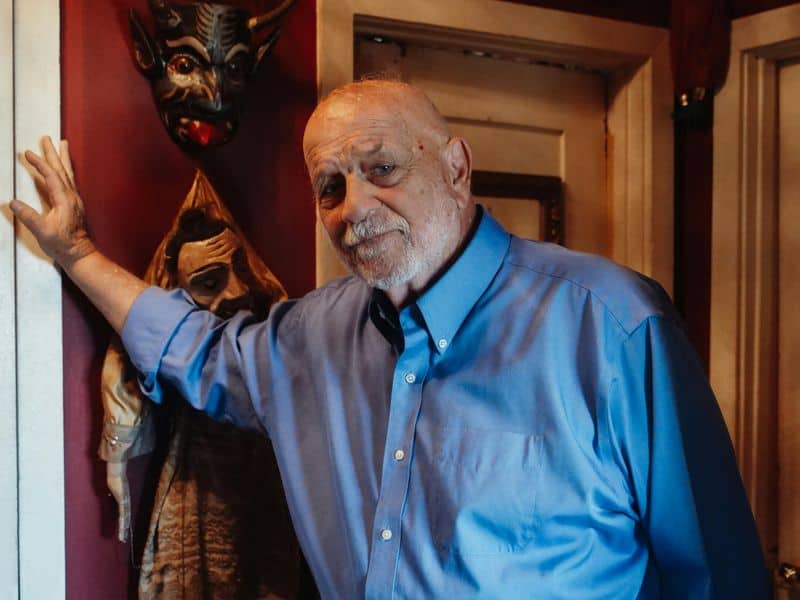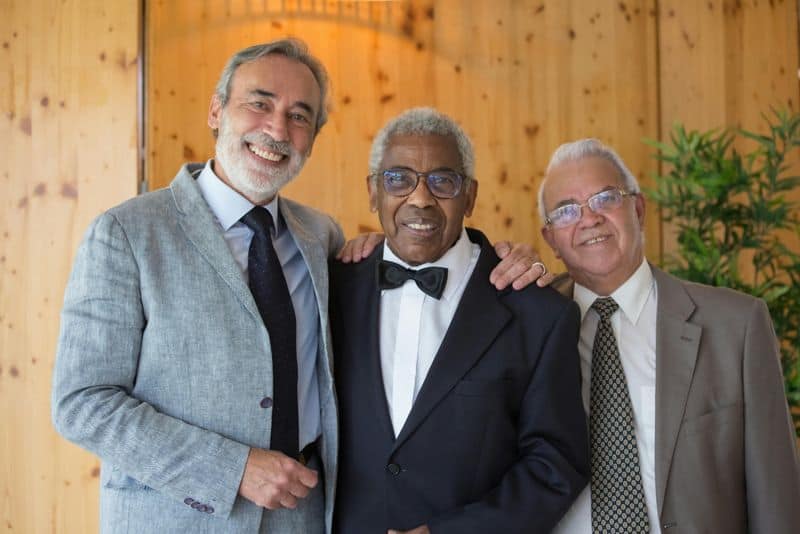Ever wonder why some older men seem allergic to settling down? Despite having years of life experience, many mature men still hesitate when it comes to commitment.
This reluctance isn’t just about wanting to play the field forever. Research shows there are deeper psychological and practical factors at work that make many older men cautious about taking relationship plunges.
1. Freedom They’ve Grown to Cherish
After decades of building their lives, many older men develop a fierce attachment to their independence. A 2022 survey by the American Psychological Association found that 68% of men over 45 cited fear of losing personal freedom as their primary concern about commitment.
These men have established routines, hobbies, and social circles that provide comfort and identity. They’ve arranged their homes exactly how they like them and answer to no one about their schedules or spending habits.
Psychologist Dr. James Morrison explains, “Many men who’ve lived independently for years develop an almost territorial relationship with their lifestyle. The prospect of compromising this hard-won independence can trigger genuine anxiety.”
2. Emotional Scars From Past Relationships
The ghosts of failed relationships often haunt older men more than they admit. Research from the Gottman Institute reveals that men typically take 1.5 times longer to emotionally recover from serious breakups than women.
Many carry unresolved pain from divorces, infidelities, or toxic partnerships. These wounds create a protective mechanism where avoiding commitment seems safer than risking another heartbreak.
Relationship therapist Dr. Lisa Firestone notes, “Men who’ve experienced significant relationship trauma often develop an unconscious pattern of emotional self-protection. This isn’t stubbornness—it’s a psychological defense mechanism formed through genuine suffering.”
3. Financial Entanglement Concerns
Money matters become increasingly complex with age. A 2023 financial wellness study found that 72% of divorced men over 50 reported significant financial setbacks that took an average of 7 years to recover from.
Many older men have accumulated assets, retirement funds, or businesses they’ve spent decades building. They may also have financial obligations to children from previous relationships or aging parents.
Financial advisor Robert Pagliarini explains: “The financial consequences of a failed marriage can be devastating later in life. When you have fewer working years ahead to rebuild, the stakes of commitment become exponentially higher.”
4. Struggle With Emotional Vulnerability
Many men from older generations were raised with messages like “boys don’t cry” or “man up.” Stanford University research indicates men over 50 are 43% less likely than younger generations to seek emotional support or discuss feelings openly.
This emotional stoicism becomes ingrained over decades, making the vulnerability required for deep commitment feel foreign or threatening. Expressing needs, fears, and insecurities doesn’t come naturally after years of emotional self-sufficiency.
Clinical psychologist Dr. Michael Reichert observes: “Men who’ve spent decades practicing emotional restraint often find themselves ill-equipped for the emotional intimacy that healthy committed relationships demand. It’s like being asked to suddenly speak a language you’ve never learned.”
5. Health and Mortality Awareness
Facing mortality becomes increasingly real with age. Johns Hopkins Medicine research shows men over 55 experience a significant spike in health anxiety, with 64% reporting concerns about becoming a burden to potential partners.
Older men often worry about declining health affecting relationship dynamics. They may fear committing to someone only to leave them with caregiving responsibilities or financial hardships.
Dr. Kenneth Robbins, geriatric psychiatrist, explains: “Many older men I counsel express profound concern about what happens if they become ill. There’s often a protective element in their reluctance to commit—they don’t want to subject someone they care about to potential suffering.”
6. Established Routines and Habits
Humans are creatures of habit, and this tendency intensifies with age. Research from the University of Southern California found that by age 50, daily routines become 60% more resistant to change than at age 30.
Older men often develop specific ways of living that provide comfort and predictability. From morning coffee rituals to preferred sleeping arrangements, these habits become integral to their sense of wellbeing.
Neuropsychologist Dr. Jennifer Wolkin notes: “The brain creates neural pathways that strengthen over time with repeated behaviors. By midlife, disrupting these pathways can trigger genuine psychological distress—it’s not mere stubbornness but a neurologically reinforced resistance to change.”
7. Fear of Modern Relationship Expectations
Today’s relationship landscape differs dramatically from the one many older men navigated in their youth. A 2023 Pew Research study revealed that 58% of men over 55 feel uncertain about current relationship norms and expectations.
Modern partnerships often emphasize emotional intelligence, equal domestic contributions, and open communication styles that weren’t modeled in previous generations. Many older men worry they lack the skills to meet these evolved expectations.
Sociologist Dr. Pepper Schwartz observes: “Many mature men find themselves caught between outdated relationship models they were raised with and contemporary expectations they weren’t prepared for. This gap creates genuine anxiety about their ability to succeed in modern commitment.”
8. Contentment With Their Social Network
Many older men develop rich friendship circles that fulfill their social needs. Harvard’s landmark longevity study found that men with strong platonic connections report satisfaction levels comparable to those in romantic relationships.
These established friendships provide emotional support, companionship for activities, and even practical assistance during difficult times. Male friendships often involve less emotional maintenance while still delivering meaningful connection.
Social psychologist Dr. Geoffrey Greif explains: “For many older men, their buddies represent decades of shared history and understanding. These friendships offer a form of intimacy that doesn’t require the same level of compromise or vulnerability as romantic commitment, making them an attractive alternative.”
9. Identity Tied to Bachelor Status
For men who’ve remained single into their later years, bachelorhood often becomes central to their identity. Psychology Today research indicates that after 15+ years of single life, 76% of men integrate their unattached status into their core self-concept.
They may view themselves as the free-spirited uncle, the available friend, or the spontaneous traveler. Commitment threatens not just their lifestyle but their very sense of who they are.
Identity researcher Dr. Susan Krauss Whitbourne notes: “When being unattached becomes part of someone’s longstanding self-definition, commitment represents more than just relationship change—it requires identity reconstruction. This explains why even men who desire companionship may resist commitment.”
10. Skepticism About Relationship Benefits
Many older men have witnessed enough failed relationships to question whether commitment truly improves life quality. A longitudinal study from the University of Chicago found that 63% of never-married men over 60 reported equal or higher happiness levels compared to their married peers.
Years of observing friends navigate difficult marriages, painful divorces, and relationship disappointments creates genuine doubt about commitment’s value proposition. They weigh potential benefits against observed costs.
Evolutionary psychologist Dr. David Buss explains: “Humans learn through observation. When men repeatedly witness relationships causing stress or unhappiness in their social circles, they develop an evidence-based skepticism that isn’t irrational—it’s an adaptive response to pattern recognition.”











